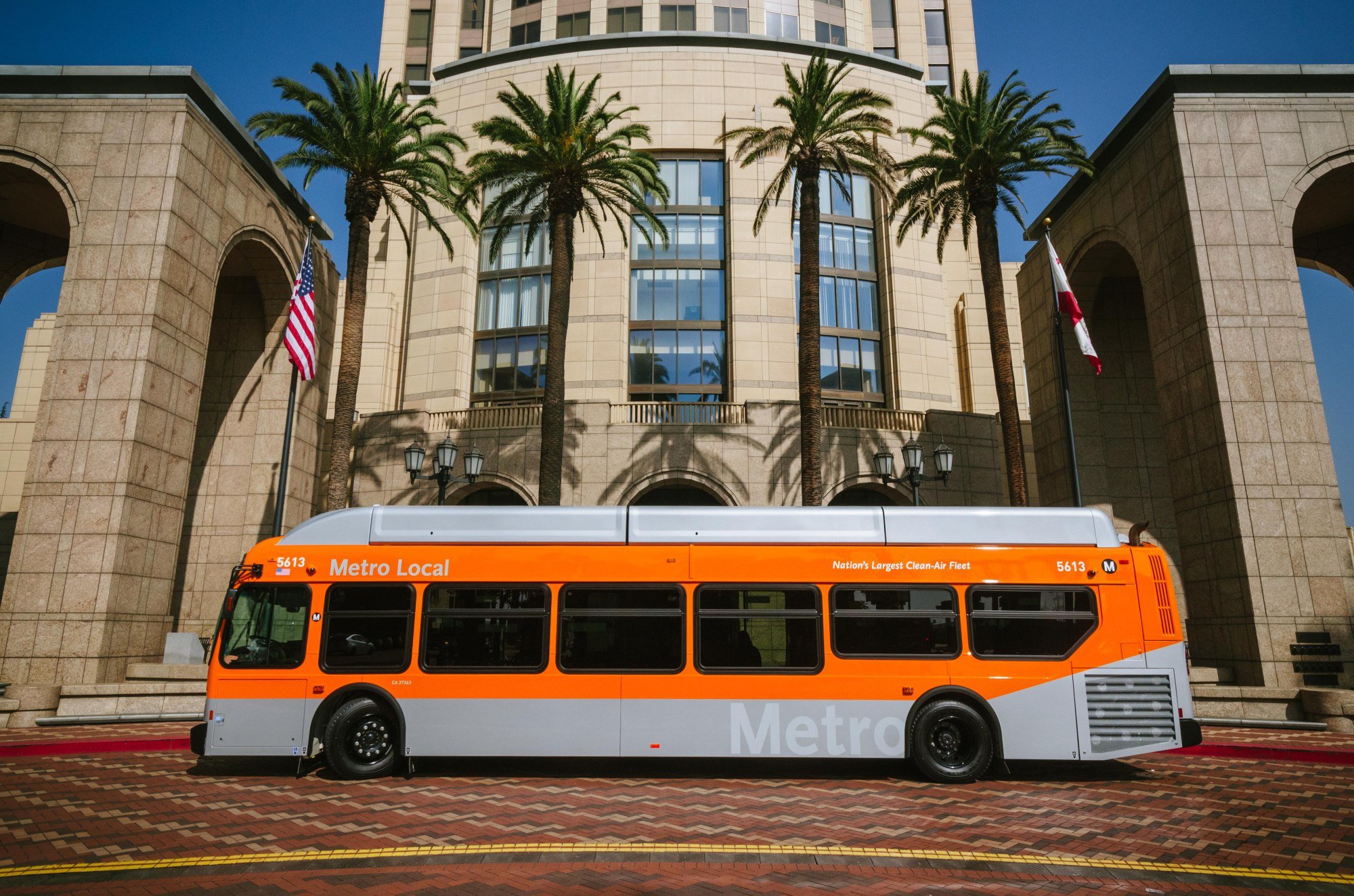
Urban Transit
Dairy Cows are Fueling Clean Transportation and Cleaner Air
Dairy manure, animal fats, food and agricultural residues, and woody biomass are all being used to produce renewable transportation fuels. More than 120 dairy farms are already capturing methane and creating clean, carbon negative, renewable transportation fuel. This fuel is being used to power transit buses, school buses, shuttle vans, delivery vehicles, heavy-duty trucks, and passenger vehicles. Replacing fossil fuel powered vehicles with RNG powered vehicles is providing significant benefits to communities across the state.
RNG buses emit as much as 90% less NOx than diesel buses.
These reductions provide significant air quality and public health benefits to local communities, including:
Santa Monica
Victor Valley
Torrance
Union City
Lodi
Morongo Basin
Riverside
Fresno
San Diego
Santa Cruz
UCLA
Kings County
Redondo Beach
Orange County
Sacramento
Solano County
Burbank
Los Angeles
San Gabriel Valley
Culver City
Santa Clarita
Ventura County
San Bernardino County
Pasadena
Glendale
*Carbon Negative Fuel – One method of quantifying the climate benefits of a particular fuel is to determine the fuel’s “carbon intensity.” This can be done by looking at the complete life cycle of the fuel and assessing the emissions associated with both the production and use of the fuel. According to the California Air Resources Control Board, renewable natural gas from dairy biogas is by far the least carbon-intensive transportation fuel currently produced in California. Renewable natural gas from dairy farms is actually considered to be carbon negative, receiving a carbon intensity score of -255. This makes dairy RNG nearly ten times more effective at reducing carbon in the atmosphere than even electric vehicles.

Photo courtesy of California Renewable Transportation Alliance
